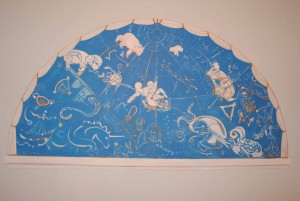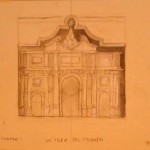 In the introduction to the exquisite stories found in Edith Pearlman’s Binocular Vision, Ann Patchett writes, “What you have in your hands now is a treasure, a book you could take to a desert island knowing that every time you got to the end you could simply turn to the front cover and start it all again. It is not a collection of bus crashes, junkies, and despair. Despair is much easier to write about than self-reliance. Theses stories are an exercise in imagination and compassion…an example of what happens when talent meets discipline and stunning intelligence.”
In the introduction to the exquisite stories found in Edith Pearlman’s Binocular Vision, Ann Patchett writes, “What you have in your hands now is a treasure, a book you could take to a desert island knowing that every time you got to the end you could simply turn to the front cover and start it all again. It is not a collection of bus crashes, junkies, and despair. Despair is much easier to write about than self-reliance. Theses stories are an exercise in imagination and compassion…an example of what happens when talent meets discipline and stunning intelligence.”
Patchett’s remarks are spot on, and we highly recommend Pearlman’s stories. We have dipped into the collection starting with the title story and working our way through “Self-Reliance,” and then on to “Vaquita,” “If Love Were All,” “Purim Night,” “The Coat,” “Home Schooling,” and our favorite, “On Junius Bridge.”
What we love about Pearlman’s writing is her keen eye and her life affirming themes. She finds beauty in every detail and joy in the most desperate situations. Her view of the world is described as “large and compassionate, delivered through small, beautifully precise moments. Her characters inhabit terrain that all of us recognize, one defined by anxieties and longing, love and grief, loss and exultation. These quiet, elegant stories add something significant to the literary landscape.” (New York Times, January 2011)
Edith Pearlman maintains an esteemed presence in the literary world. She has earned the praise and recognition of her peers but not enough attention from readers. As Ann Patchett writes, “Binocular Vision should be the book with which Edith Pearlman takes up her rightful position as a national treasure. Put her stories beside those of John Updike and Alice Munro. That’s where they belong.”
So, for our first pick of 2013, we are wholeheartedly suggesting Binocular Vision. Consider giving it throughout the year as a gift to all the smart women you know who love fiction. We are certain that they will find the stories as enchanting and meaningful as we do.
